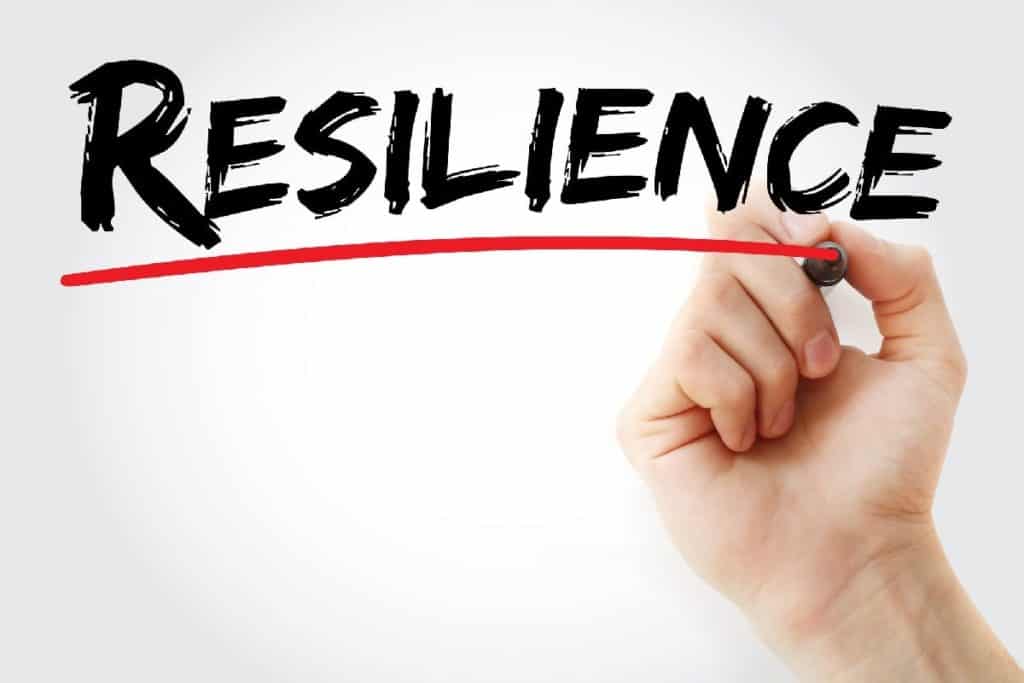
People need to know the meaning of resilience to be equipped with the skills and strategies when life throws stones at them.
How individuals cope with life experiences and circumstances depends primarily on the level of resilience they possess as a person.
While some of us find it easier to deal with stressful events, others struggle to even think of an alternative to face such a depressing situation.
Resilience is best defined as the ability of a person to utilize his strengths and positive coping mechanisms in handling stress and various life circumstances.
This personality trait enables us to bounce back and emerge victorious despite all the hardships and life’s downturns.
Everybody needs to know what resilience means and why it matters to be equipped with the right techniques and problem-solving strategies when life hits the hardest.
Moreover, understanding the concept of resilience is crucial in developing a sense of optimism that is especially beneficial to a person’s general wellbeing.
While resilience may spark healthy, meaningful conversations and generate a plethora of beneficial outcomes, this outstanding trait remains a major talking point in various conversations.
To learn more about resilience and its importance to life, continue reading below.
What Does Being Resilient Mean
Being resilient simply means having a positive outlook and mental fortitude in dealing with difficult life situations.
It is how a person handles stress, trauma, and adversity such as a chronic illness, job loss, recent breakup, and the death of a loved one.
Resilience enables us to rise to various challenges with dignity and pride. This is our ultimate resort to bounce back whenever life throws us rocks and things do not go as planned.
Being resilient prevents us from dwelling on failures and wallowing in self-pity. Instead, this personality trait makes us acknowledge the situation, accept our shortcomings, and continue moving forward.
Our resilience allows us to naturally see life as merely a challenge and not a traumatizing event. When we are resilient, we look at our failures as opportunities for growth and success.
Non-resilient people dwell so much on negativity and view failures as a burden weighing them down. When they are too preoccupied with negative thoughts, this often leads to burnout, helplessness, and despair.
Resilient Person Meaning
A resilient personis full of optimism and positive energy. He handles life’s adversities with a heart of a warrior and the mind of a champion. A significant level of resilience enables a person to be open, content, and adaptive to changes.
Resilient people are attentive and responsive to various stimuli that challenge their emotions, character, and behavior.
They remain aware and in control of various life conditions presented to them. Also, they efficiently think of the best ways or solutions to address life’s setbacks.
Other essential characteristics of resilient people include:
- High Sense of Control. A resilient person has a high sense of self-control, which makes him take control of all his actions and be accountable for all his actions. By remaining aware, he can effectively think of new ways to solve his problems and rise above failures.
- Motivated. A resilient individual has an overflowing drive to pass life’s tests with flying colors. He utilizes his full strength and stamina in eradicating all the roadblocks to his success. He is focused and determined to achieve his goals at all costs.
- Having the Survivor Mentality. When dealing with a difficult situation, a resilient person views himself as the ultimate survivor, not the victim of a circumstance. He is aware that life crises are an inevitable part of his journey to success.
- Excellent Problem-Solving Skills. When an unexpected situation arises, resilient people immediately think of a solution that will generate the best outcome. They assess the situation carefully and develop a strategy based on the important details they find in the situation. Resilient people solve a particular issue calmly, justly, and rationally.
- Having a Good Sense of Humor. In times of adversities, an optimistic person remains optimistic and thinks of positive ways to overcome his problem. He utilizes laughter as a powerful tool to lighten up the load and put things into perspective.
Examples of Resilience
People with resilience are most likely to achieve happiness, contentment, and unprecedented success in life.
They possess grit and fortitude that are readily available in times of danger and uncertainty.
Weathering a storm, remaining calm during difficult situations, and facing challenges with stoicism are some of the most popular examples of resilience.
To better understand how resilience works, here are a few examples:
- Despite the sudden loss of his father, Luke begins the healing process by accepting the fact that life is unpredictable and full of surprises. He considers the incident a blessing for him to take a break from his busy, stressful life and spend more time with his family.
- The CEO of a company loses more staff in just two weeks due to some company restrictions. To address the situation, he carefully accepts his limitations as a leader and starts recruiting workers from different places, promising them better work opportunities and more decent salaries.
- Rain is working as a ward nurse in a state hospital, a workplace that he considers a living hell due to a stressful workload. Instead of complaining, he stays optimistic by seeing the content, happy faces of his patients, especially those that are most satisfied with his clinical care.
- Despite being drained by the toxic attitude of her friend Hilary, Lindsay remains hopeful that she will eventually change one day. Lindsay keeps reminding Hilary that her negative attitude gets in the way of her success and is affecting her relationships with people.
- Being born deaf and mute, Jules has successfully mastered the art of remaining calm and steadfast despite his disabilities. He strongly affirms that everything will be alright in time. At present, he is working as a Senior IT Specialist in a multinational company.
Why Resilience Matters
Want to build an Unshakable Resilience? Here’s the training I did and here’s more on my personal experience from it (The Quest for Personal Mastery).
People normally seek a justifiable answer to the question, “Why do we need resilience?”
As stated above, people need to know the meaning of resilience to be equipped with the skills and strategies when life throws stones at them.
In times of adversities, in the end, we only have ourselves.
While people can continually remind and offer positive coping strategies to help us solve our problems, the final decision is still ours to make.
Being definite about these matters can be mastered by years of practice and perfecting these problem-solving strategies that are built by resilience.
The ultimate secret to having an excellent state of resilience health is vulnerability. This key factor of resilience allows us to acknowledge our emotions and accept these as an inevitable part of our identity.
It is important to note that vulnerability is not synonymous with numbness. Those who are numbing themselves to pain are emotionally disconnected and unaware of their real feelings.
They numb themselves to escape from the harsh realities of life and protect their sanity.
Resilience is a personality trait that gives us the emotional strength to face life adversities with the right attitude and moral standards.
It is the inner self that keeps reminding us to be resilient to change. It enables us to utilize our inner strength to take a giant leap to success.
Those who lack the resilience in life are most likely to get stuck, feel helpless, and resort to unhealthy coping strategies.
These negative coping mechanisms such as isolation, avoiding issues, excessive sleeping, impulsive buying, and drug/substance abuse are unhealthy patterns of behavior that can shoot us in the foot.
Resilience gives us the reason to commit our lives to our goals and pursue the very reason for our hard work. This personality trait offers us a compelling reason to rise early and start the day right.
Resilience motivates people to commit to their relationships, work, morals, and spiritual beliefs. It empowers us to come up with the brightest ideas and solutions to various circumstances in life.
Resilience helps us to focus on our ultimate goal of winning in life despite all the adversities and challenges we face. It gives us a reason to live and win in life amid all the chaos and uncertainties we continually face.
Resilience enables us to devise a plan and develop essential strategies whenever life gives us overwhelming adversities. This helps us find our inner balance during stressful events.
Knowing why resilience matters might save you one day from an inevitable, difficult situation that requires excellent problem-solving strategies. Resilience might be your last resort.
What Resilience Means and Why It Matters: Final Thoughts
Living in a fast-paced world can be challenging – things can instantly turn from best to worst.
But however life can rip us into pieces, we must find that perfect balance to regain a sense of mental stability and live again.
Indeed, knowing what resilience means and why it matters can save us in our future endeavors in life.
Related Posts:
Mindvalley Membership – Is It Worth It? (my personal experience)
How Is Confidence Related to Resilience?
Why Resilience Is Important For Success? (5 Crucial Reasons)
5 Effective Strategies For Building Resilience (and Managing Stress)







What a wonderful and important post! I’ll be sharing this on social media. . . we need to understand the importance of resilience more than we ever did as we move forward into our uncertain future. . .
Thank you so much! Happy to hear you found it helpful!